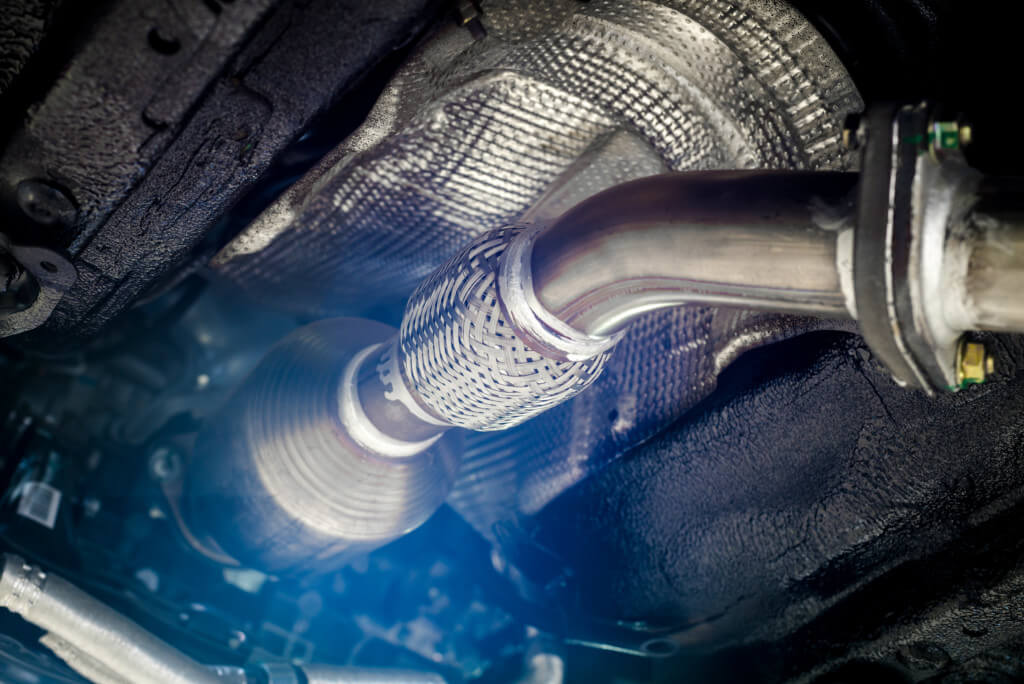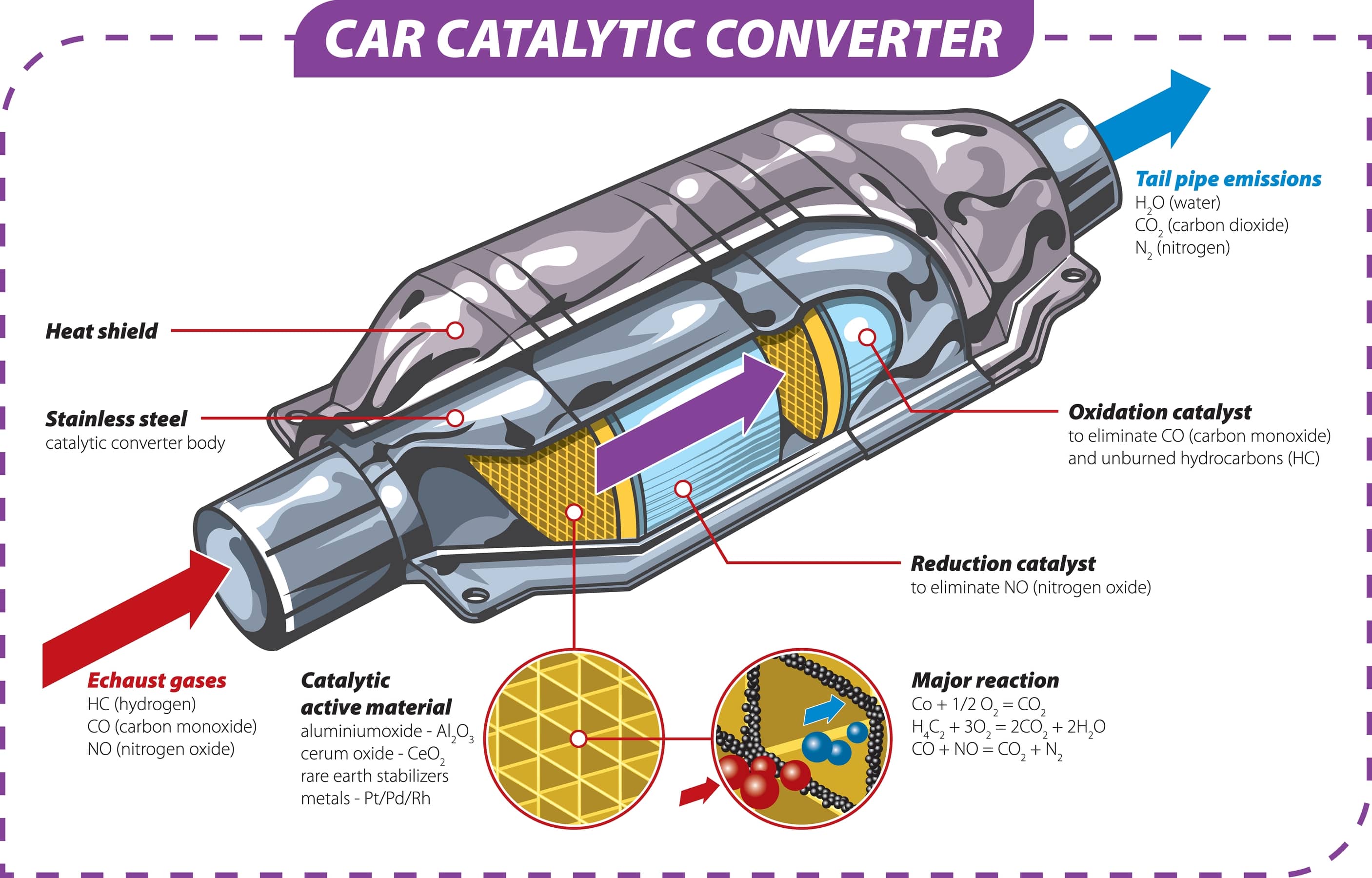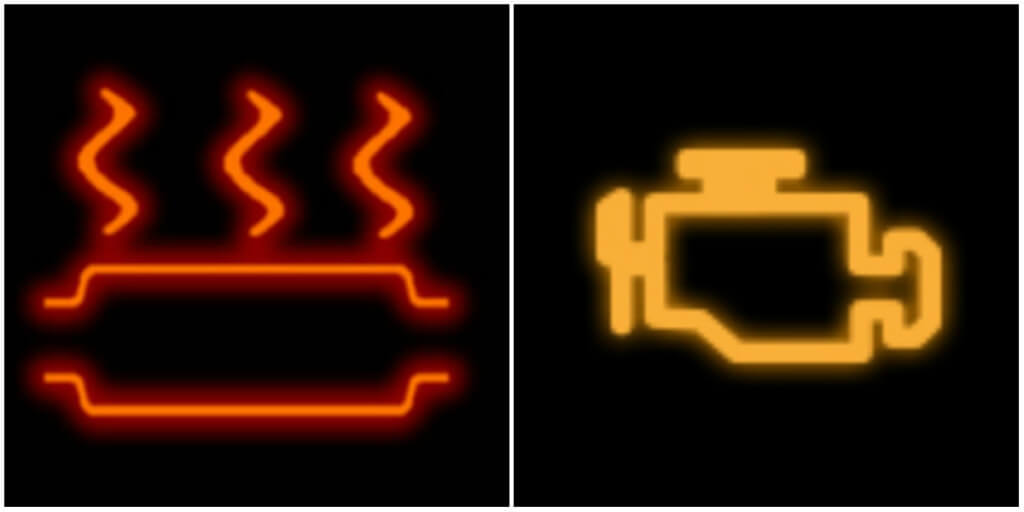Catalytic converters are not cheap to build. They use Platinum, Palladium or Rhodium as a catalyst. These precious metals are hard to find and cost between £28 and £570 per gram!
And, as these prices constantly fluctuate, it’s hard to predict how much a catalytic converter will cost.
Since replacing a catalytic converter can be such a big job, you may end up paying higher labour costs. The car needs to be lifted off the floor, and if the converter is welded or bolted to the car the mechanic may need to use specialist tools.
If you’re looking for a quote for your catalytic converter replacement, don’t accept any offer until you’ve done so. We’ll help you find the best deal in your area.
Enter your reg and postcode to book a FREE visual inspection at a local garage. Compare garages based on their ratings and reviews and labour prices to find the one that best suits your needs.
Once the garage has had a look, they’ll provide a transparent, no-obligation price for a new catalytic converter from a garage near you. Most importantly, you deal with the garage directly and you never pay a penny until after they’ve completed all the work.
Join over 5 million UK drivers who have compared garages on BookMyGarage to book the best deal on their car maintenance. Click below to enter your reg and postcode and book a FREE visual exhaust inspection to find and fix your catalytic converter problem now.
Book online today!
What Does a Catalytic Converter Do?
The catalytic converter speeds up the removal of harmful exhaust gases. It does this by splitting their molecules up before they can leave the exhaust. It converts CO2 (Carbon Dioxide) and NOx (Nitrogen Oxides) into Oxygen and water vapour.
These are much cleaner emissions, which are much safer to release into the atmosphere.
CO2 contains carbon and oxygen and NOx contains nitrogen and oxygen. These molecules are bonded together through chemical reactions during the combustion process.
Each of these elements is less harmful on its own, so modern exhaust systems are designed to release them into the atmosphere separately.
Does My Car Need a Catalytic Converter?
Yes, your car needs a catalytic converter. Every car registered in the UK must have one fitted by law. It has been standard for petrol vehicles since 1992, and 2001 for diesel vehicles.
Petrol and diesel engines combust differently, so there are different types of catalytic converters.
‘Two-Way Oxidation’ – The first versions had a simple purpose. They turned Carbon Monoxide into CO2, and Hydrocarbons (particles of unburned fuel) into CO2 and water.
‘Three-Way-Oxidation’ – This type of catalytic converter is fitted to modern cars. It has the same purpose as ‘Two-Way Oxidation’ but reduces your NOx emissions as well. These include Nitric Oxide (NO) and Nitrogen Dioxide (NO2. These are two of the most harmful exhaust emissions.
‘Diesel Oxidation Catalyst’ – These units are fitted to diesel vehicles. Diesel cars naturally produce more pollution than petrol cars. Without any intervention, this would choke the planet. To combat rising pollution levels, car companies invented several other exhaust treatments which include Diesel Particulate Filters and AdBlue.
Modern catalytic converters are more efficient than the original models. This means that our cars release less CO2 into the environment now than ever before – even if they can’t reduce it to 0%.
What Does a Catalytic Converter Look Like?
A catalytic converter looks like a large metal box with two pipes coming out of it. This is bolted to the exhaust assembly underneath the back of your car (as below).

This is what a catalytic converter looks like inside.

If you can’t see your ‘cat’, you should get your car towed to a local garage immediately. You’ve likely been the victim of a catalytic converter theft. These are an ever-growing problem in the UK.
Why Are Catalytic Converter Thefts So Common?
‘Cat’ thefts are increasingly common in the UK because the catalyst materials have a very high value. As well as this, the part is an easy target.
Thieves don’t need to be delicate when stealing a ‘cat’. They can quickly cut the entire exhaust manifold away from the car and disassemble it later. This means many thefts happen in broad daylight.
If you suspect you’ve been the victim of a catalytic converter theft, don’t drive the car. Get a second opinion from your recovery provider or a local mechanic and then contact the police to report the crime. You will also need to source a replacement catalytic converter.
Fortunately, if you can provide a valid crime number to your insurance company, they should cover the cost of the replacement for you.
BookMyGarage offers a free visual inspection, so if you are unsure if your catalytic converter has been stolen, you can have it looked at for free to save you time and money.
Just enter your vehicle registration and postcode and select the FREE visual inspection option. A mechanic near you will be happy to look at your car and tell you whether or not your catalytic converter has been stolen and needs replacing.
What Can Cause Your Catalytic Converter To Wear Out?
Like most aspects of your vehicle, treating your car in a certain way can influence the lifespan of your catalytic converter. There are several things that could cause your catalytic converter to need changing sooner than expected.
-
Poor Engine Maintenance.
If your engine is in poor shape, your converter will wear out quickly. Things such as worn-out valve guides, misfiring spark plugs, and incorrect oils and fuels can contribute to shortening the lifespan of your catalytic converter.
-
Coolant Leaks
If your antifreeze or coolant leaks into the combustion chamber you could end up with a large problem on your hands. The leak will clog the converter, which will lead to the production of thick soot.
This soot blocks the air passages, rendering the converter useless.
-
Only Using Your Car For Short Trips
The catalytic converter only works when it reaches a certain temperature – if it doesn’t get hot enough it will not burn hydrocarbons completely. It takes your car time to reach this temperature, so if you’re only driving for five minutes at a time you will end up with a clog.
Go for a longer drive regularly to ensure the burning of the build-up of deposits in the converter.
-
Broken Oxygen Sensor
If your oxygen sensor is malfunctioning, it may be sending inaccurate readings to your car’s computer. This can result in issues with the conversion of harmful fumes to safe ones.
-
Broken Spark Plugs
If your spark plugs are misfiring it could result in unburned fuel igniting inside the converter. This will melt the ceramic to melt and malfunction.
When Do I Need to Book a Catalytic Converter Replacement?
If there is a problem with your ‘cat’, you need to get it sorted right away.
Fortunately, it gives you plenty of warning if there is a problem. The most common of which would be seeing either of these warning lights.

If either warning light comes on, you should book an inspection at a garage near you. You should always take a warning light seriously, but it’s even more important if you see the exhaust warning light.
It could lead to an MOT failure and a very expensive repair bill if you don’t get the problem fixed.
Almost 1.3 million drivers failed an MOT due to excess exhaust emissions in 2020 – don’t let it be you in 2022.
Even if you don’t yet see the warning light, any of these symptoms could mean your catalytic converter has a problem.
- Your engine runs rough
- Increased fuel consumption
- Increased emissions
- Excessive white smoke
- Blue smoke
- Slower acceleration
- The engine does not accelerate past a certain RPM (usually idle speed)
- Your engine cuts out (due to additional backpressure)
- There is a rattling noise from the exhaust
By catching an exhaust problem early, you can preserve your catalytic converter and increase your chances of passing the MOT emissions test.
It may also help to keep the cost of your replacement down.
How Long Does a Catalytic Converter Last?
A catalytic converter should last between 70,000 and 100,000 miles.
However, like most car parts, the lifespan of your ‘cat’ is affected by your driving habits. Lots of stop-start or short journeys can wear it out quicker.
This is because they don’t bring the car up to the proper running temperature.
How Long Does it Take to Replace a Catalytic Converter?
A catalytic converter replacement takes about 1-2 hours on average. It’s fairly easy to access so the mechanic doesn’t have to disassemble your car to remove the old one. This saves you a lot of time!

